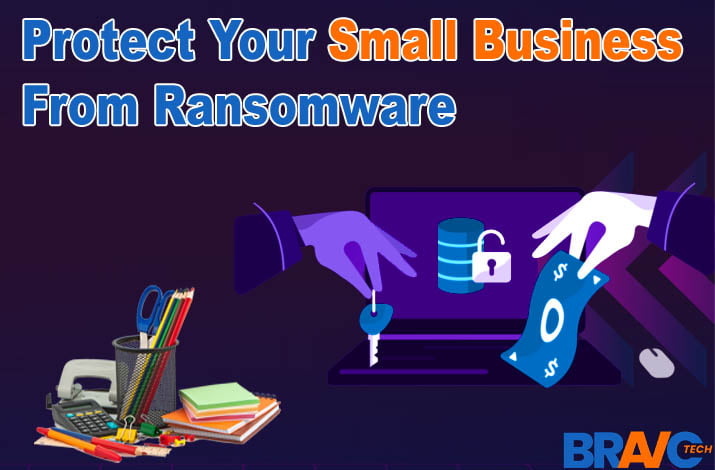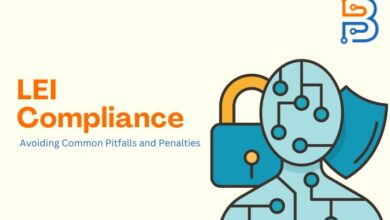
During the last several years, ransomware has become the worst cybersecurity nightmare for many small businesses. Things got so bad by the end of 2021 that the White House rushed a statement warning companies to take immediate action for protection.
Although ransomware often hits large enterprises or even governmental institutions, thinking small businesses are safe would be a mistake. On the contrary, hackers often target them expecting little resistance.
That’s why 82% of ransomware attacks aim at small companies, and here’s how you can protect yours without draining fund reserves.
Data Backup and Cloud Storage
After infecting the computer network, ransomware spreads and encrypts business data, paralyzing operations. One way to avoid an immediate operations halt is to back up important data regularly.
There’s an unwritten 3-2-1 data backup rule: make at least three copies on two separate storages, with one being offsite. Three backups ensure data recovery in case one of them fails. More importantly, making one offsite backup guarantees immunity to ransomware that spreads on an infected computer network.
Cloud storage is an excellent choice for an offsite backup for small businesses that don’t have vast resources for proprietary server infrastructure. Instead of keeping business data on a barely secured SSD, you can trust it with a secure cloud server. It’s far less likely that hackers will attempt to break a professional cloud service invested in cybersecurity as a business prerequisite. Here’s what to look for when choosing a trustworthy cloud service provider:
- Advanced encryption to protect against data leaks;
- Virtual and physical server security;
- Regular data backups;
- Real-time threat monitoring and protection;
- Multi-factor authentication log-in protection.
Employee Training

Even the most expensive cybersecurity system is not enough without adequate employee training. A staggering 95% of cyber incidents are caused by human error, such as downloading an infected file, clicking on a fraudulent backlink, or using easy-to-guess passwords. Knowledge is often the first line of defense.
Hackers frequently use social engineering and Phishing attacks to trick unsuspecting employees into downloading a virus. What’s more, with so many personal details shared over social networks, it’s especially easy to personalize scams and make them more believable. High-quality cybersecurity training provides these benefits:
- Reduce the risk of malware infection by teaching to identify Phishing scams, infectious backlinks, and fraudulent email attachments;
- Develop healthy online browsing habits, including password management and potential threat assessment;
- Boost employee confidence and productivity by creating a safe atmosphere in the workplace;
- Ensure compliance with business policy and international data safety laws;
- Teach real-time response to cyber incidents.
Cybersecurity training is an ongoing process because cybercriminals regularly develop new hacking tools. Moreover, most hackers will target untrained employees because it has the easiest potential returns.
Constant Updates
Another way of breaching a business network is by exploiting unpatched vulnerabilities. Because businesses use dozens of different software apps, keeping them updated is essential. Developers that notice a vulnerability in their software will rush to code a hotfix and roll it out as soon as possible to minimize the risks. However, if you don’t update your software quickly, the chances of becoming a victim increase several times.
Cybercriminals use tools like the Shodan search engine to find vulnerable devices over the Internet. If you skip up on too many updates, sooner or later, your devices will pop up as open for exploitation.
Cyber Insurance
If your small business budget allows it, getting cyber insurance is one of the most effective ways to ensure longevity. Even the most tech-advanced companies like Microsoft and Apple get regularly hacked as there are no 100% fool-proof online protection systems. But Apple and Microsoft can recover after being hit, a privilege seldom affordable by small companies.
Instead, you can get cyber insurance. Because it’s a new type of insurance, it’s best to get legal advice before committing. However, most cyber insurance packages include a real-time response advisor, public relations management, and some kind of damage reimbursement. Remember that insurance may not cover the losses resulting from business errors. That’s why it’s best to go through the first steps before signing for an insurance package.
Email Link
You should be cautious when dealing with email links. It is advisable to avoid clicking on any links in emails or pop-up messages unless you are certain of their legitimacy. Be wary of opening attachments or downloading files from any email, regardless of the sender, as they may contain viruses or malicious software to compromise your computer’s security. If a link appears legitimate, hover your mouse over it (without clicking) to reveal a small window displaying the URL. If the URL differs from the displayed link text, it could lead you to a potentially harmful destination.
Data Backup and Recovery Plan
The implementation of a data backup and recovery plan is crucial. While there is debate surrounding its effectiveness in the face of double extortion ransomware attacks, it is important to note that not all ransomware incidents involve data exfiltration. In such cases, having a reliable backup allows for swift data restoration, eliminating the need for ransom negotiations and minimizing disruption. Therefore, maintaining a robust backup system remains a useful protective measure against ransomware attacks.
Secure Your DNS
Dedicated DNS security is an effective measure to safeguard against ransomware threats. It does a dual purpose by blocking suspicious domains that may distribute malware and detecting ongoing attacks. In the advanced stages of a ransomware attack, hackers commonly employ DNS tunneling to establish communication between their control servers and your network. It is paramount to closely monitor DNS activity and employ strong security measures to prevent instances of tunneling to combat ransomware effectively.
Final Words
In-depth, sophisticated cybersecurity systems are exceptionally expensive. But they are also rarely targeted by most hackers. They will rather concentrate on small companies that don’t invest in online safety. By implementing the discussed steps, you will get basic yet effective protection against ransomware. It will be enough for most cybercriminals to search for an easier target and keep your business data safe and recoverable in case of an unfortunate accident.






